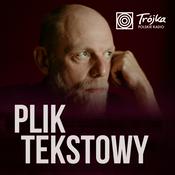999 odcinków
- Last October, Bari Weiss—best-known as a contrarian opinion writer who launched the right-leaning Free Press—was appointed the new editor-in-chief of CBS News. Donald Trump has called her new regime “the greatest thing that’s happened in a long time to a free and open and good press.” The New Yorker staff writer Clare Malone wrote about Weiss’s hostile takeover of CBS for the January 26, 2026, issue of the magazine. In a conversation with David Remnick, Malone discusses her reporting on Weiss: how resigning from the New York Times launched Weiss to prominence as a crusader against what she has characterized as woke groupthink; how Weiss gained the support of Silicon Valley titans who had their own political grievances; and the headlines about Weiss’s rocky beginning as head of a news network, including the on-air travails of her new anchor, Tony Dokoupil.
New episodes of The New Yorker Radio Hour drop every Tuesday and Friday. Join host David Remnick as he discusses the latest in politics, news, and current events in conversation with political leaders, newsmakers, innovators, New Yorker staff writers, authors, actors, and musicians. - Tucker Carlson has long been a standard-bearer for far-right views, such as the racist conspiracy theory known as the “great replacement.” He recently did a chatty interview with the white supremacist Nick Fuentes, an admirer of Hitler. And yet, Carlson started out as a respected, well-connected, albeit contrarian, political journalist. Jason Zengerle, who recently joined The New Yorker as a staff writer, talks with David Remnick about his new book, “Hated by All the Right People: Tucker Carlson and the Unraveling of the Conservative Mind.” They trace how Carlson’s sense of personal resentment toward the establishment grew; how launching his own website radicalized his politics in the years before MAGA; and his political ambitions as a potential heir to Donald Trump. “I think, if Tucker Carlson concludes that J. D. Vance can’t get elected President, maybe he has to do it himself,” Zengerle says. “So much of politics now is just being a media figure and being an entertainer. And Tucker does those things very well. . . . I think our politics are at a place where that really doesn’t seem as outrageous as it would have even just a couple years ago.”
New episodes of The New Yorker Radio Hour drop every Tuesday and Friday. Join host David Remnick as he discusses the latest in politics, news, and current events in conversation with political leaders, newsmakers, innovators, New Yorker staff writers, authors, actors, and musicians. - Danny Funt has been reporting on the gambling boom for The New Yorker, which has generated startling recent headlines, including the arrest of a former N.B.A. coach and the indictment of two M.L.B. pitchers—not to mention the Polymarket user who won four hundred thousand dollars wagering on the seizure of Nicolás Maduro. The legalization of sports gambling, combined with the accessibility of betting apps, has made gambling so pervasive that children in elementary school are routinely placing bets, Funt tells David Remnick. Funt’s new book is “Everybody Loses: The Tumultuous Rise of American Sports Gambling.”
- Before becoming a podcaster, Jennifer Welch had a successful career as an interior designer and co-starred in a reality show on Bravo. But, since 2022, she and Angie Sullivan, her co-host on the podcast “I’ve Had It,” have gained millions of fans as a sounding board for left-leaning political frustrations. These aren’t only concerns about MAGA but also about the Democratic establishment that she views as captive to a corporate agenda. Welch talks with David Remnick about her contentious interviews with Cory Booker and Rahm Emanuel, her belief in “dark woke,” and how a white Oklahoma woman in her fifties emerged as one of the most provocative voices on today’s left.
- Prenups have gone from a tool of the ultra-wealthy, carrying a whiff of scandal, to a more widespread request for aspirational young couples with few assets. Wilson spoke with celebrity divorce attorney Laura Wasser, and found that generations who grew up in the era of universal no-fault divorce “just don’t trust marriage” as their elders did; “they want it in writing,” and they have developed apps that make it easy. Clauses calling for nondisparagement on social media are a common feature. But the boom in prenups, Wilson tells David Remnick, has led to couples trying to negotiate even intimate issues such as frequency of sex and body-mass index.
Jennifer Wilson’s “Why Millennials Love Prenups” appeared in the December 29, 2025 & January 5, 2026 issue of The New Yorker.
Więcej Sztuka podcastów
Trendy w podcaście Sztuka
O The New Yorker Radio Hour
Profiles, storytelling and insightful conversations, hosted by David Remnick.
Strona internetowa podcastuSłuchaj The New Yorker Radio Hour, Już tłumaczę i wielu innych podcastów z całego świata dzięki aplikacji radio.pl

Uzyskaj bezpłatną aplikację radio.pl
- Stacje i podcasty do zakładek
- Strumieniuj przez Wi-Fi lub Bluetooth
- Obsługuje Carplay & Android Auto
- Jeszcze więcej funkcjonalności
Uzyskaj bezpłatną aplikację radio.pl
- Stacje i podcasty do zakładek
- Strumieniuj przez Wi-Fi lub Bluetooth
- Obsługuje Carplay & Android Auto
- Jeszcze więcej funkcjonalności


The New Yorker Radio Hour
Zeskanuj kod,
pobierz aplikację,
zacznij słuchać.
pobierz aplikację,
zacznij słuchać.


































